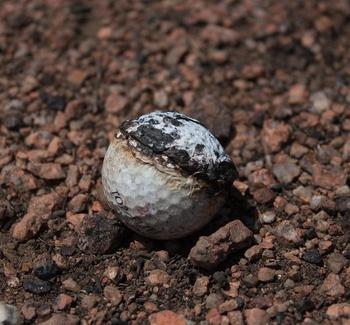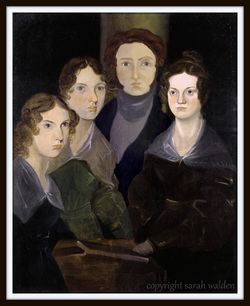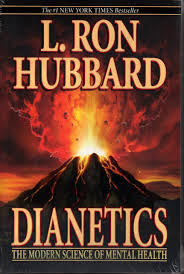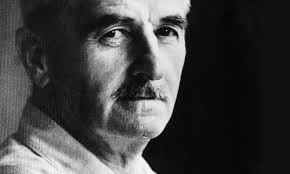Multiple Passes: A Post About Editing

The Black Gate executive golf course was built on the highest volcano in Scotland, and, between the snow and the lava, I would have been hard pressed to make par. Had I been actually playing, the round of golf would have taken far longer, and, looking at the rumbling caldera to one side, I wasn’t certain we could spare the time. John O’Neill, however, was having the sort of game that allowed the group to clip along at an unprecedented pace.
Being the cart driver, I listened to him chatting on a phone to this or that business associate as we navigated the narrow tracks between holes. But, as the sixteenth hole approached, he had not gotten another call, and I took my chance.
“I was thinking about a new blog post, and wanted your opinion, sir,” I ventured. Mr. O’Neill , startled from his reverie, grunted and looked over at me.his eyes opening into narrow slits.
“Are you still blogging, Starr?” he asked.
“Uh, yes, sir,” I replied. “I was thinking about the topic of editing, actually, and –”
“Editing?” he asked, his incredulity awakening him fully, and he fixed me with an icy stare. “Why can’t you write anything exciting? Like something about aliens?”

I pulled the cart up the where the tee boxes began, and we got out. The next cart stopped immediately behind, and the executive caddy alighted, followed by the porter, who shouldered a massive golf bag. Three personal assistants, Emily, Anne, and Charlotte, waited not far behind, looking slim and dangerous in their tailored skirts and narrow jackets. Lastly, the looming bulk of Tolstoy, his glower perfectly suited to the terrain.
As hot gasses drifted past, I stood, self-conscious in my kilt, feeling the air shift the large pom on my cap, the unwieldy bagpipes clattering in my arms. At O’Neill’s signal, I began playing as best I could, watching as he consulted with the caddy, took stock, and proceeded to make a perfect drive, the tiny speck of his ball bouncing on the charred grass and rolling across the colorless green before vanishing into the distant hole. Handing off the club, he motioned for me and returned to the cart. After stowing my things, I got back behind the wheel.
“So what can you possibly say about editing that hasn’t been said more eloquently before?” he asked. I licked my lips, which tasted of ash and sulphur. He glared suspiciously. “This isn’t another post about primal scream therapy, is it?”
“No, sir,” I answered. “Although many writers might benefit from a good, cleansing –”
“Oh, please,” he said, cutting me off with a gesture. “Whenever I hear the words writer and cleansing in the same sentence, I start to get a little uncomfortable.”
“My point was just that editing can be stressful, and if you approach it from a new perspective, it might help.”
“Editors edit, Starr. Writers merely draft.” He grunted with satisfaction as we rounded the bend to the next fairway, a boulder-strewn wasteland featuring a distant stand of gray, lifeless trees. O’Neill waited for his caddy to tee up the ball, but shook his head as I brought the bagpipes to my lips.
“Hold off, Starr. When I hit this ball, you’ve got until it stops moving to intrigue me about this whole editing kick you’re on.”
He consulted briefly with the caddy, accepted a driver, and launched the ball into the miasma between the tee and the hole. I took an acrid breath and dove into a compressed version of my blog post.
“Do multiple passes of your story, concentrating once on continuity and logic, once on the literary tone, and once on visuals and sensory –” O’Neill barked in satisfaction as the ball drove into the hole without so much as a single bounce. Nodding to me with a look of pleasure, he led the way back to the cart. I resumed my place behind the wheel, feeling disconsolate, but hoping to capitalize on his good humor.
“So,” I concluded hurriedly, “only after you do those separate passes do you hand a manuscript off for someone else to read.”
O’Neill shook his head, as if startled. “Are we still talking about this?” he asked. “Something about going over and over a story? Are you kidding? I can usually not even get through most writer’s work even once!” As I steered the cart, he gestured up the slope toward where the peak shimmered with heat ripples.
“Do you know what this landfill used to be used for?” he asked.
“This volcano’s a landfill?” I asked, disbelieving.
“Darn right!” he growled. “This used to be the Black Gate slush pile, but it reached a critical threshold, and melted through the crust, just as Hawking warned me it would.” He sighed in rare regret.
“If only I’d believed him,” he concluded, “I could have had a volcano to throw manuscripts into years earlier!”
I rounded the last major rock face, and we paused, looking across the rope bridge that spanned the north-west chasm. I glanced worriedly at the support ropes, which were blackened in places, but O’Neill seemed unconcerned, waving me forward.

“And all this rejecting by myself and my editorial rivals,” he continued as we rumbled across the worn wooden slats, “happens after all of this drafting you’re talking about. So there you have it. It’s hopeless.”
“Maybe a bit of structure would help some writers,” I offered, staring down into fields of broken rock, watching as vultures circled far below us.
“What’s with this self-help stuff?” O’Neill growled. “Who are you, L. Ron Hubbard?” The cart bumped back onto solid ground, and I gave a silent sigh of relief.
“Oh, no, sir,” I managed as the cart slewed about on loose slate. It was a close thing, but I managed to not plunge us over the edge. Mr. O’Neill didn’t appear to notice. I glanced back as the other cart followed, the occupants entirely unruffled, all dark glasses and creased business suits. I adjusted the tam on my head, and wiped a sweaty palm against my kilt, nervously gripping the asbestos padding around the cart’s small steering wheel. We had arrived at the eighteenth hole, and I got out with a palpable sense of relief.

I watched as O’Neill addressed the ball, calmly gauging the distance to the hole, although the wasteland that served as a fairway bent around the caldera itself, and I gazed into the glowing pit just a few paces away, trying not to cough as I played, the bagpipe’s mouthpiece hot on my lips. O’Neill’s drive arced out over the lava, the ball lit from below as it bypassed the curve and shot far out over the hellish pit. Thermals lifted and bent the ball’s trajectory, and it curved toward the distant flag, trailing smoke as it bounced twice and dropped into the hole.
O’Neill smirked, accepting a seltzer water as he walked back to the cart.
“Let’s get out of here,” he muttered to Charlotte, who nodded wordlessly and held a hand to her earpiece, speaking softly as she moved away, and I stumbled back to the cart, counting the steps and looking back at the melted footprints my soles left behind.
As we began to move slowly down the cart path, with the other group now in the lead, O’Neill regarded me with a piercing gaze.
“Why don’t you write something about accepting feedback?” he asked. “You know, without all the tears and hand-wringing?”
“That might be a good angle,” I allowed, blushing as I remembered my own reaction to O’Neill’s comments on my latest story.
“Yeah,” he said, sitting back and closing his eyes. “Run with that. Tell all those writers out there to not get so precious about their writing. Like Faulkner once said, you’ve got to kill off your whole darn family for good literature.”
“Wasn’t it kill your darlings?” I asked.
“Of course that’s what he said later, to the police,” O’Neill said with a coy smile. “But just get that message out: listen to your editors, because they invariably know better than you, the writer, do.”
“Um, I’m not sure that –”
“And,” he continued, warming to his subject as we approached the helipad, where the other cart had stopped and the rotor blades were already turning, “let those ingrates know that good editing is hard to find, and they should feel thankful for every redaction and grammatical correction they receive. Tell those whiners not to be so defensive. Editors are nice people. Writers aren’t under attack, and all that advice just makes their writing better. If they can figure out how to use it. Fat chance of that, thought!”

Still chortling, he hopped lightly from the cart, his solid frame still limber from his judo years, and strode over to the helicopter, where Anne was sitting in the pilot’s seat, going through the checklist. Charlotte was already working the communications console, while Emily clipped herself into the door gunner’s position. O’Neill sat in the center of the cabin’s plush seat, accepting a snifter of something from the caddy, who had positioned himself behind a small wet bar.
“Remember,” he said, regarding me with satisfaction, “all that editing makes the writers look good. You guys get all the credit for the end product, and what reward do we editors get? Nothing!”
The sliding door was slammed shut between us, then, and I stepped away, suddenly aware that I had not been invited aboard. Tolstoy clapped a helmet over my head, and thrust a snowboard at me, which I gripped awkwardly alongside my bagpipes. He pointed to the snowline, stretching out below us.
From the volcano’s open shaft just above, a rumbling grew in volume, and the rotors of the helicopter roared ever faster, fluttering my kilt.
“Better make it quick,” Tolstoy rumbled. “For once.”
He stepped back onto the skid, gazing down at me impassively as the helicopter lifted away, carrying Tolstoy with it, and I looked down at the fields of boulder-strewn snowpack between vertical drops.
Quicker was better, I thought. Why drag things out?
Aaron Bradford Starr has published a number of short stories and novellas with Black Gate, both the print edition (“Mortal Star,” in Volume 8), and in the Online Fiction Library. His online stories include “The Daughter’s Dowry,” “The Tea Maker’s Task,” “The Sea Lord’s Successor,” and “The Highwater Harbor.”
Modesty forbids him from mentioning any favorable reviews, accolades, or awards these stories may have garnered. To do so would make him uncomfortable.
They never did find his darlings.
*snort*
Charming post, Aaron.
And, for your amusement, I leave you with my favorite advertising slogan of all time, from Utilikilt: “A kilt for every occasion…except bungee jumping.”